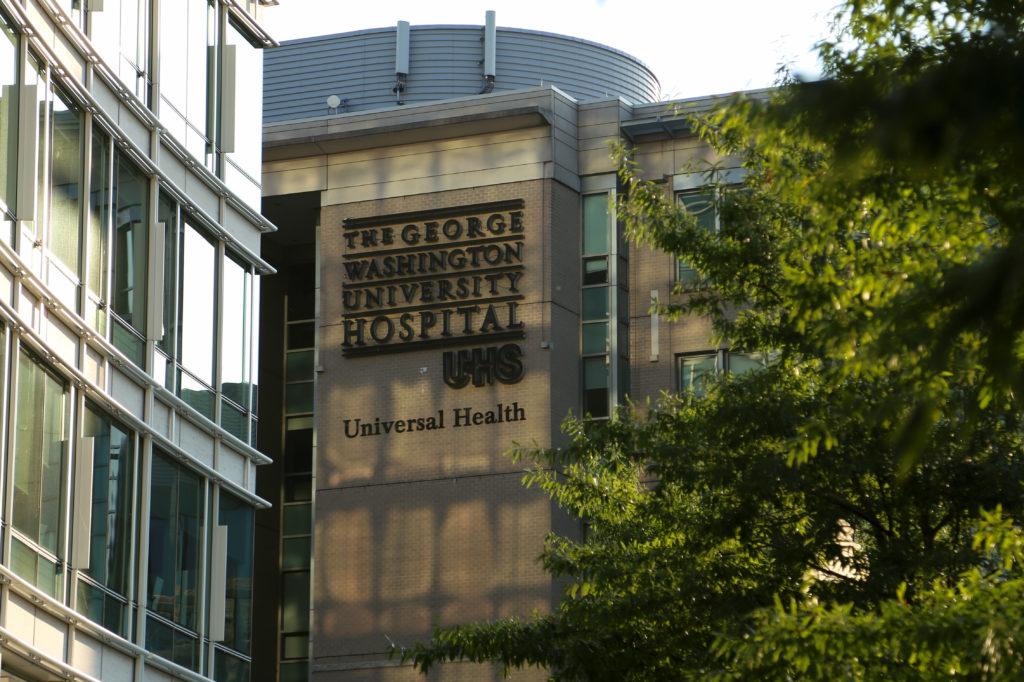Updated: Sept. 6, 2018 at 2:48 p.m.
University President Thomas LeBlanc announced earlier this year that one of his top priorities is improving the collaboration between GW’s medical partners – but now he will do so without guidance from a formal Board of Trustees committee.
Nelson Carbonell, the chairman of the Board of Trustees, said the board is taking a step back from the University’s efforts to forge a better connection between the GW Hospital, the Medical Faculty Associates and the School of Medicine and Health Sciences. Carbonell said the board’s committee on medicine and clinical partnerships stopped meeting this summer, allowing administrators to take over the initiative.
“The University administration is now leading this important work as part of the president’s strategic initiatives,” he said.
Carbonell said the board will continue to provide “strategic oversight” of the medical enterprise.
Since announcing the medical enterprise as a priority in April, officials have updated the website to include achievements, including the announcement that GW Hospital will soon run a hospital in southeast D.C. and the launch of the GW Health Network, a group of health care providers that give coordinated care to Medicare patients.
University spokeswoman Lindsay Hamilton said the board’s medical and clinical partnerships committee “played a role in assessing where the medical partnerships currently stand and in considering goals for the future.” She said that moving forward, the board will still provide input about the status of medical enterprise at GW.
“Their guidance has helped to steer the university administration’s work on this strategic initiative,” she said.
She declined to say how officials anticipate working with trustees in the future on the initiative.
Hamilton said the University will release updates about progress on the medical enterprise throughout the academic year. She said officials are prioritizing strengthening the relationship between the medical school and the MFA and is continuing to “explore growth opportunities to expand the clinical and training footprint.”
Higher education experts said trustees have a broad, long-term outlook on issues within the university and their priorities can shift every year. They said trustees may have decided to focus their committees’ attention to more general issues, like declining enrollment.
The University created a new task force over the summer examining the changing demographics of the college-age population nationwide.
Jay Dee, a professor of higher education administration at University of Massachusetts Boston, said it’s typical for a board to take a step back after studying a particular issue and providing insight to the administration. Though the committee did not produce a report, Dee said it would be unusual if trustees provided no feedback to officials about the state of the medical initiative.
“It’s not uncommon issue for boards to periodically be engaged in an issue, produce a report, issue some recommendations and then back up and allow administrators to make decisions and implement plans,” he said.
Mikyong Kim, a professor of higher education administration at GW, said it is typical for trustees to cut committees, or create new ones, if their priorities have shifted. She said they may have more important things to do than work closely with medical partnerships, something that the president can oversee or delegate to others in the field.
“It is not really surprising to remove [a committee] if they don’t think it’s necessary anymore,” she said.
James Antony, a senior lecturer on education at Harvard University, said that because trustees have so much authority over the University, it is likely they have a strategic plan to work with the administration to achieve its medical goals. If the two entities do not seem to be in perfect alignment from the outside, he said the trustees are likely giving the president leeway.
“A well-functioning board of trustees gives guidance and advice to the president but also allows the president considerable room to be able to articulate his or her vision and the way they want to proceed,” he said.
Donald Heller, the provost and vice president of academic affairs at the University of San Francisco, said the board’s primary objective is to look at the big-picture interests and issues for the University. Sometimes there’s overlap between the board’s fiduciary duties and small management, but it doesn’t happen often, he said.
“You certainly don’t want your board being involved in the day-to-day operations – that’s not what their role should be,” he said.





